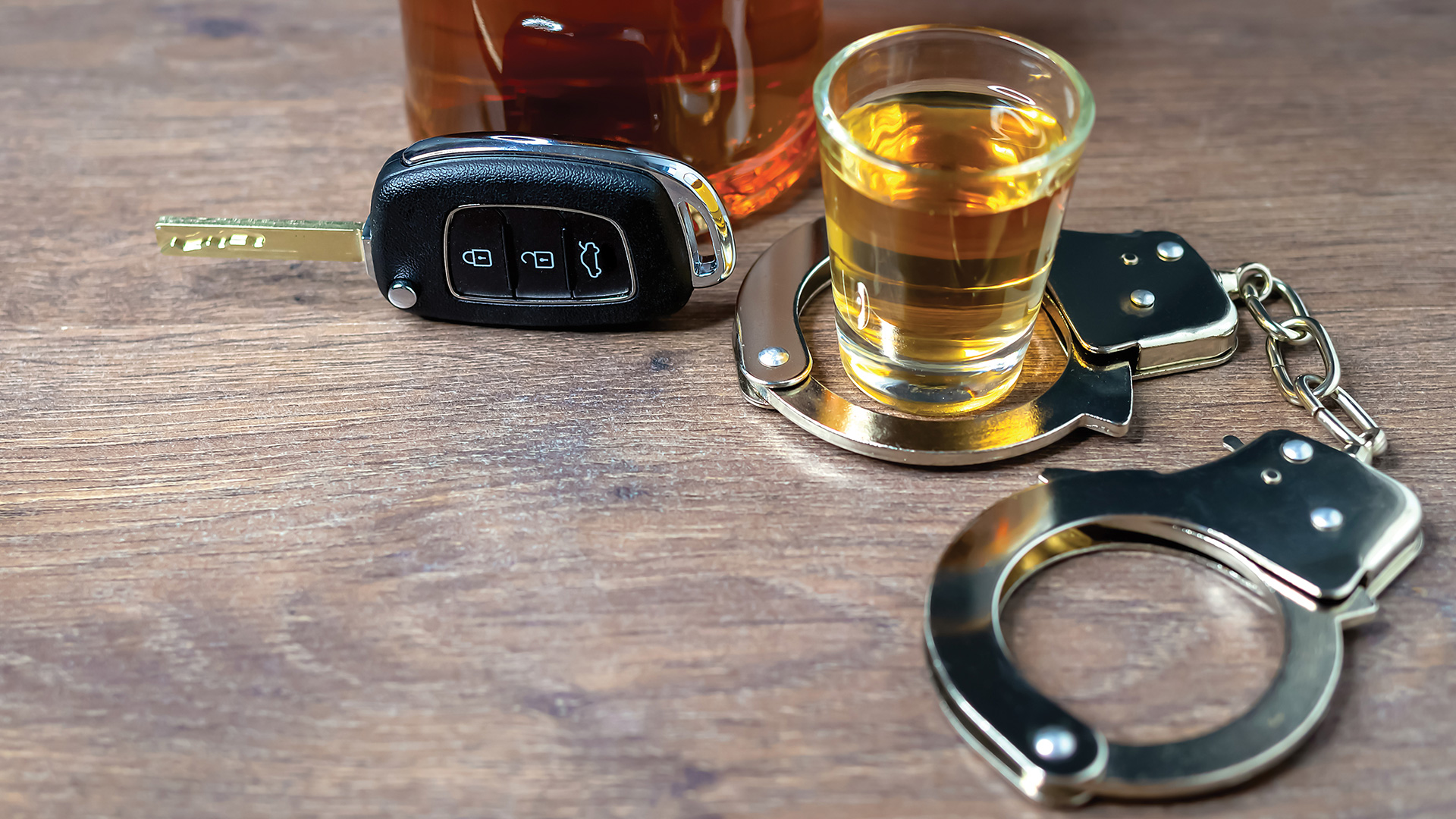
Trust me, you can dance.
— Vodka
In this guide, the experts at the Los Angeles Police Department’s Substance Abuse Task Force provide numerous strategies to help encourage responsible drinking in your department.
Engagement strategies
- Acknowledge the long partnership between law enforcement and alcohol. Alcohol is consumed in celebration as part of police “traditions” — Baker 2 Vegas, off-probation parties, promotional parties, personal milestones, birthdays, entering and exiting a specialized unit. But alcohol is also used to deal with grief and trauma and to debrief incidents throughout police careers.
- Reinforce responsible drinking. Start by planning and having a limit. If you know you are going to consume alcohol, plan for it. If someone has had too much, have the courage to say “enough” and take the appropriate action. Look out for each other. Ask your police union to reimburse you for rideshare programs (such as Uber or Lyft).
- Have courage to speak about coping effectively. Start by setting the right example. If you know someone may be in danger, go ahead and shoulder tap them. Often our brothers and sisters in blue are screaming for help. Too often we turn a blind eye, yet we are trained observers. Also remember that peer support can be found in almost any station.
- Consider how your agency is coping with mobilization, staffing shortages, trauma, stress, insufficient sleep and recovery. Our family is under siege. If officers use alcohol to sleep, unwind or forget things they have seen or heard, this could easily turn problematic. Encourage utilization of department and community resources.
Organizational strategies
- Be proactive. Implement a policy before crisis hits. It should state that alcoholism and stress-related problems are genuine medical problems that deserve proper professional care.
- Lead by example. All command staff, including the chief of police, should communicate on a regular and on-going basis that every employee has an impact on the culture. Advise command staff that they must go further in order to remain in the command ranks. They must eliminate avoidance or dismissive behaviors around substance use problems. Do not stigmatize or shame. Address problems logically, fairly and without shaming. Invest in employee wellness and stress management.
- Set limits. There’s a saying in Alcoholics Anonymous: If you’re in the barber shop long enough, you’re going to get a haircut. In other words, if the substance is around, it’s likely going to be picked up, especially in times of stress or trauma. Consider letting go of alcohol-related sponsors, alcohol-focused events and the alcohol-related tchotchkes (e.g., bottle openers, koozies). Setting limits is not about eliminating alcohol. It’s about shifting to a more effective, moderate, safe and professional culture.
- Encourage learning from experience. Utilize the employees who have experienced these alcohol-related incidents and have been fortunate enough to remain a productive member of the department. They can and should be utilized on a voluntary basis for critical training throughout the department.
Messaging strategies
- April is Alcohol Awareness Month. Use the month of April as an opportunity to increase awareness and understanding of alcoholism, treatment and prevention. Be creative. Host a mocktails contest. Let officers use drunk simulation goggles while shooting hoops. Bang on drums. You can have various events throughout the department. It’s a good way to get the community involved, have fun and really engage personnel.
- Cultivate information output. Post a DUI counter on your department’s website. Use Twitter and Instagram to engage especially the younger officers. The key is to pause ahead of time to really think about your words. Be intentional about your messaging. Sending no message still sends a message.
- Avoid stigmatization and permissiveness. When the officer returns to roll call, say: I’m glad to see you. I’m glad you are here today. Welcome them. Be authentic. Provide an overview of the incident. Share your own personal story. Share how the incident has you thinking about your own alcohol consumption. Acknowledge that there are peers and friends in the group, and that they may be reflecting on their actions that night or their own drinking. Encourage such reflection. There may be some who are not ready or willing to hear this. That’s OK. It’s still important to engage them anyway. Do not say: You had it coming, or It’s about time. Avoid sarcasm and jokes. Tell the troops: Let’s support this officer.
Intervention strategies
- Create a peer support cadre. A substance abuse cadre within peer support is analogous to a specialized unit within a department. Such a cadre would provide a higher level of expertise and skills. Generally, the role of peer support is to promote hope through positive self-disclosure. Hey, man, I’ve been through the same thing. Here’s what worked for me … Here’s what didn’t work … What have you tried? Peers demonstrate that recovery is possible, and any peer support program should be supported top down. Give the employee the peer support roster. Offer to help connect them to the person.
- Understand Addiction Prevention Unit (APU) services. Give employees a place to go for help if they have questions or concerns about substance abuse. Services may include substance abuse assessment and counseling, treatment vetting, referrals, transportation, support and education groups, department-wide training, managerial consultation and case management.
- Access benefits. Consider the ways that department employees can get help for substance abuse issues (e.g., in-house police psychologists, EAP services). Seek community resources if officers need more than the department can provide.
- Utilize groups, trainings and consultations. Provide substance abuse/addiction trainings at roll calls. Time is limited, but huge impacts can be made. Provide trainings at recruit, watch commander and command development schools, unit divisional training days and supervisor meetings. Establish support groups (such as Sobriety Tactics) that are available to all employees. Utilize free alcohol support groups. Keep all groups voluntary. They should never be mandatory or part of any discipline. AA and Al-Anon meetings can be found 24/7 around the world and are easily accessible online.
- Refer and transport. Connect department employees (literally) with the alcohol-related services that they may need — A.A., Peace Officer Fellowship (POF) and inpatient treatment. POF meetings are 12-step meetings exclusively for first responders with a growing national network.
- Watch out for red flags. Take immediate action regarding obvious red flags — DUIs, black outs and binge drinking on RDOs. Pay attention when officers use alcohol to cope. Talk to them about often overlooked red flags — relationship or family problems, making poor decisions or failing to fulfill personal or work obligations. Look out for prescription meds and their high risk for abuse and addiction, particularly pain, anxiety and oh-so-habit-forming sleeping pills. They may work in the short term, but they can cause nasty side effects — intense cravings and excruciating withdrawal — that bite officers on the bottom later.
Key stakeholders strategies
- Engage institutional partnerships. If you know one or more employees are struggling with alcohol or other substances, say: Hey, no matter what you’re going through right now, you can get through it. It might not be easy. It probably won’t be easy, but you can get through it. There’s hope and help available. If you want to make a clinical referral, say: I am concerned about you. How are you doing? What is going on? Share your experience if applicable. Even if you’ve never gone to therapy, share what your tactical or other debriefings were like. Clarify your motives for wanting them to seek help. Reiterate that you care about them. Speak the truth out of love. Don’t use it as a disciplinary tactic or argument tactic. Don’t wag your finger and say there’s something wrong with you. Offer to make the clinical connection for them. Expect some resistance. Acknowledge that they’re struggling. Validate their feelings. And just keep the conversation open. If they want to continue the conversation in the future, let them know that you’ll always be here to have that conversation with them when they’re ready.
- Engage organizational partnerships. Solicit input from the community police advisory boards. Consult with former disciplined officers to get their input. Link current and community salient events to substance abuse.
- Embrace a comprehensive outreach approach. Create your own department Substance Abuse Task Force. Make it interdisciplinary. Don’t put all doctors or all command staff on it. Strength comes from different perspectives. And it costs nothing.
- LEAN on me. Do you need to consult? The Law Enforcement Addiction Network (LEAN) meets every month and offers pro bono consultation to all law enforcement personnel and agencies. Email LEAN@lapd.online to request such consultation. You and your agency are worth it!
Be as tactically safe and sound off duty as you are on duty! And never be satisfied with the status quo.
As seen in the October 2021 issue of American Police Beat magazine.
Don’t miss out on another issue today! Click below:





